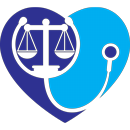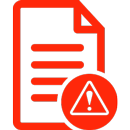Preparation for Surgery
Your physician will discuss your procedure with you and schedule the surgical appointment. Unless instructed by your surgeon, you must visit the Physicians Surgery Center one week before surgery to complete pre-admission documentation and perform any required pre-surgical testing ordered by the surgeon.
- Patients who are physically unable to visit the center to pre-admit may speak with a member of the nursing team by phone to review medical history, receive instructions and ask questions.
- The anesthesiologist or physician may order an EKG or other tests that need to be performed before your surgery. These will be done when you pre-admit for your surgery. In the event you do not pre-admit, the timing and location of these tests will be arranged by your physician or the center and may further delay the procedure.
- A minor (under 18) patient must be accompanied by a parent or legal guardian who can sign documents on his or her behalf. A parent or legal guardian also must remain on site during a minor patient’s entire stay at the center. Family members or friends may not serve as guardians without appropriate legal documentation.
- Surgery schedules may be impacted by many factors. Delays are often unforeseen, and any changes to the surgical schedule are communicated to patients and families promptly. This is an ambulatory surgery center, so your surgery and recovery should be fairly quick. We respectfully request that patients suggest to their families and friends that no more than two people be in attendance during your procedure.
- You may not drive yourself home after surgery. If you do not have a responsible person with a valid driver’s license to drive you home and remain with you for at least 24 hours after your procedure, your surgery will be cancelled.
We offer a class on Total Joint Replacement prior to joint-replacement surgery. Please contact us to find out when you can attend. Or, you can watch the presentation below.
Day of Surgery
- Do not eat or drink anything after midnight on the day of surgery. This includes chewing gum, mints or the use of tobacco products.
- If you take blood pressure, heart, seizure, breathing medications, stomach medications or Prednisone, please take with a sip of water when you wake, unless otherwise directed by your physician.
- Do not take diabetic medications the morning of your surgery.
- If you develop a fever or cough, or if you experience any other change in a medical condition, call your physician promptly.
- Please take a bath or shower, using an antibacterial soap, the evening before or the morning of your procedure. Do not wear perfume, cologne, makeup, nail polish, body jewelry, contact lenses or deodorant.
- Anesthesia may be harmful to the unborn. If you might be pregnant, please notify your surgeon immediately.
- Failure to follow these instructions could result in delay, cancellation or serious complications, including death.
- If you are unable to keep your appointment or are delayed, please contact the surgery center.
Morning of surgery
- Brush your teeth.
- Remove all makeup, jewelry, and contacts. If you must wear contacts, please bring your storage case for use during surgery.
- Wear loose, comfortable clothing that can accommodate a bandage, cast, or other type of dressing where the procedure is being performed.
- Arrive at the surgery center at the time given by your surgeon or the center’s nursing team.
- If you have experienced any health changes since pre-admitting, please notify your surgeon or the center.
- Bring insurance cards, photo ID, payment and all paperwork from your physician and/or the surgery center.
- Bring all current prescription medications to the center for the anesthesiologist to review.
- Leave all valuables at home. The center cannot be responsible for lost or stolen items.
- If possible, please leave small children at home. The center has very limited offerings for children for an extended period of time. Patients also are asked to bring no more than two family members or friends to the center.
- The privacy of all our patients is very important; therefore, family and friends should not enter patient care areas unless specifically instructed to do so by center staff. Individuals such as friends and pastors who are not immediate family members will not be told about
your care unless you provided direct, specific authorization for us to do so. - You are being provided care by an AAAHC-accredited facility. If you have concerns regarding your care while at this facility, you may contact AAAHC at (847) 853-6060.
The Surgical Experience
Upon arrival, you will check in with the receptionist and wait briefly until a member of our staff calls for you to move to the pre-operative holding area. No more than two people should accompany a patient to the center, and if possible, it is preferable for small children to be entrusted to the care of family or friends who do not come with the patient to the center.
Once brought to the pre-operative area, your medical information will be reviewed by both a nurse and your surgeon. Depending upon the procedure you are having, an anesthesiologist also may speak with you, and an IV may be started. Once properly prepared and sedated, members of the surgical team will escort you to the surgical suite for your procedure.
When your procedure is complete, you will be guided to a recovery bay and carefully monitored until you are fully alert. At the appropriate time, we will invite a family member or friend to be with you to assist with your discharge. The length of time your family member must wait to see you varies with each procedure.
Leaving the Surgery Center
For most procedures, you will be ready to leave the Surgery Center within two hours after your surgery. Every patient will receive specific discharge instructions, both verbal and written, before leaving.
Every patient must arrange transportation home, as you will not be allowed to drive yourself, regardless of your procedure. It also is important that you have someone stay with you for the first 24 hours following surgery. Follow your physician’s orders regarding activity, diet and medication, and contact your physician if you experience problems after discharge. A member of the center’s staff also will contact you after discharge to check your progress and answer any questions you may have.

 Get Directions
Get Directions Pre-Register
Pre-Register Patient Guide
Patient Guide Your Surgery
Your Surgery Total Joint Video
Total Joint Video Patient Rights
Patient Rights Privacy Notice
Privacy Notice Nondiscrimination Notice
Nondiscrimination Notice Surprise Bills
Surprise Bills Good Faith Estimate
Good Faith Estimate Advance Directives
Advance Directives